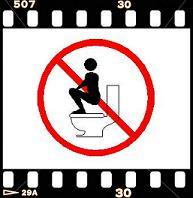A list of prominent directors from East Asia. Basically trying to keep track of whose films I tend to like most often or most strongly.
The +1 list – A side
I’ve watched at least two films from these directors and they’ve made at least one film that I really enjoy.
Mainland China
Zhang YiMou
Chen KaiGe
Feng XiaoGang
Wang XiaoShuai
Jia ZhangKe
Hong Kong
Wong Kar-wai
Johnnie To
Pang Ho-cheung
John Woo
Alan Mak
Stephen Chow
Ann Hui
Taiwan
Ang Lee
Edward Yang
Japan
Kore-eda Hirokazu
Nakamura Yoshihiro
Iwai Shunji
Yamada Yoji
Kurosawa Kiyoshi
Miki Satoshi
Yaguchi Shinobu
Ozu Yasujiro
Sato Shinsuke
Suzuki Seijun
Takahata Isao
Miyazaki Hayao
Sato Yuichi
Kawase Naomi
Hamaguchi Ryusuke
Tanada Yuki
South Korea
Park Chan-wook
Bong Joon-ho
Kim Jee-woon
Lee Joon-ik
Kwak Jae-yong
Yeon Sang-ho
Kang Hyeong-cheol
Jang Hoon
The +1 list – B side
List of directors that I don’t really like but I’ve seen multiple films by them because they seem interesting and/or other people seem to appreciate their works a lot.
Taiwan
Hou Hsiao-hsien
Tsai Ming-liang
Hong Kong
Tsui Hark
Japan
Miike Takashi
Sion Sono
South Korea
Kim Ki Duk
Lee Chang-dong
Hong Sang-soo
The 1 & done list
I’ve only seen one film by these directors but it was a film I liked a lot.
Mainland China
Li Yang
Diao YiNan
Hong Kong
Philip Yung
Fruit Chan
Japan
Motoki Katsuhide
Uchida Kenji
Kudo Kankuro
Kurosawa Akira
Kawamura Taisuke
South Korea
Lee Won-suk
Kim Young-tak
Jeon Soo-il
Kim Bora
And here I list a few actors that I really like or whom I think are very versatile. I will watch almost any film that they are cast in or at least take notice of a film that I might otherwise not consider if it didn’t have them in the cast.
Mainland China
Gong Li
Tang Wei
Liao Fan
Zhao Wei
Zhou Xun
Jiang Wen
Huang Bo
Hong Kong
Tony Leung Chiu-wai
Chow Yun-fat
Lau Ching-wan
Carina Lau
Simon Yam
Maggie Cheung
Leslie Cheung
Taiwan
Guei Lun-mei
Shu Qi
Chang Chen
Japan
Nishijima Hidetoshi
Abe Hiroshi
Yakusho Koji
Yu Aoi
Takeuchi Yuko
Nikaido Fumi
Maki Yoko
Ayano Go
Odagiri Jo
Tsumabuki Satoshi
Ayase Haruka
Matsuoka Mayu
Nounen Rena / Non
South Korea
Ha Jung-woo
Son Ye-jin
Lee Byung-hun
Jeon Do-yeon
Song Kang-ho
Choi Min-sik
Chun Woo-hee
Shim Eun-kyung
Notes about romanized names
Director and actor names on posts are copy-pasted from festival websites and other websites. Unfortunately, there are different spellings for many names often related to how old the actor is. For movies I watched at festivals, I take the cast name off the festival website. For other movies, I usually take it off either AsianWiki or Wikipedia, which use different spellings sometimes. On this list, I use whatever is on Wikipedia.
In general all Mandarin names of mainland China actors that you see on this blog follow Hanyu pinyin spelling but without tone diacritics.
Taiwan names are a bit tricky as they use a different romanization than mainland China and there are different systems. In the rare case an actor has multiple variations, I use what’s on Wikipedia (a prime example being Gwei Lun-mei).
Hong Kong Cantonese names don’t all seem to follow the same romanization system (since Cantonese itself has several competing systems without a clearly dominant one). But I have never seen an actor professionally credited with more than one variation of a Cantonese name so there’s generally no confusion. If an actor has a professional English name, I use it over the Cantonese one or a combo of both in cases where different actors have the same English name (Tony Leung Chiu-wai, being a prime example to differentiate him from Tony Leung Ka-fai).
In this list, I put the family name first in Japanese names, which is not the case in most of the posts on this website where the family name is last. Japanese words and names can have long vowels and on this list I ignore long vowels. In reviews on this website there is unfortunately a mix of different spellings used depending on the festival where I watched the movie. Often it’s ignored in the spelling (like in names such as Ryuhei, Ryohei, Kyoko and Ryoko, which would be Ryūhei, Ryōhei, Kyōko and Ryōko). But when it’s not, sometimes a “u” or “h” is added to the vowel “o” to make “ou” or “oh” or there is a doubling of the letter “uu” or “ii”. In Japanese romanization systems the correct way to represent long vowels is to add a diacritic to the vowel because there can possibly be ambiguity in terms of kanji with the multi-vowel romanization of long vowels. For long vowels, Wikipedia adds the macron (horizontal bar or line over the letter) like ō and ū based on modified Hepburn. IMDB uses the circumflex (which looks like a little hat or inverted v above the letter) like ô and û based on a system created by the Japanese government. Oddly, I’ve never seen a diacritic over i but I’ve seen “ii” often enough. Some older celebrities use non-standard romanization, I’ve seen Qusumi instead of Kusumi. But then there’s the popular young actor who has adopted a more English looking spelling of his Japanese name, Mackenyu instead of Makken’yū.
While some Korean names follow a romanization system, some don’t. The main two systems are the most recent Revised system made by the South Korean government and the older romanization system, McCune–Reischauer. The latter I think is more common. For example “Gim” would be the revised romanization for the popular Korean family name “Kim” but I’ve never seen any actor use “Gim”.
Of course, maybe I should just add the names in their original language…
